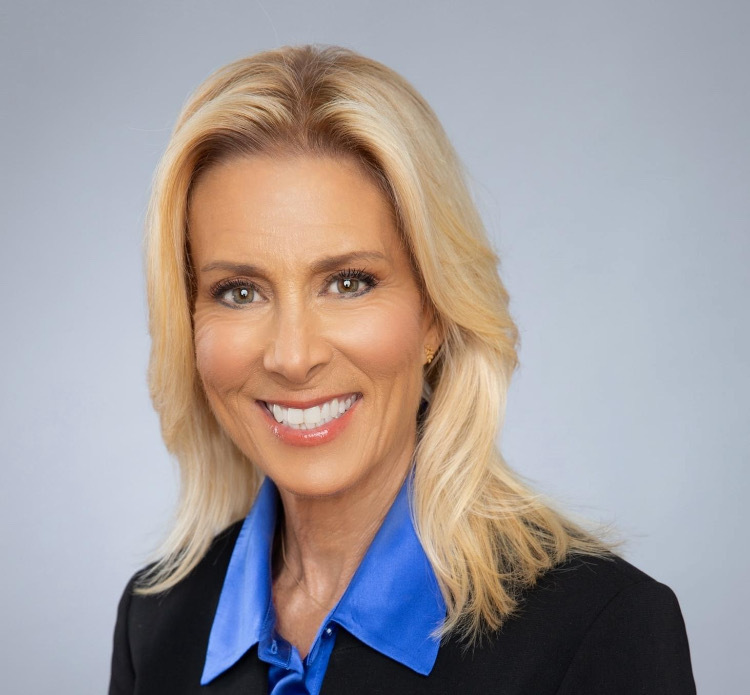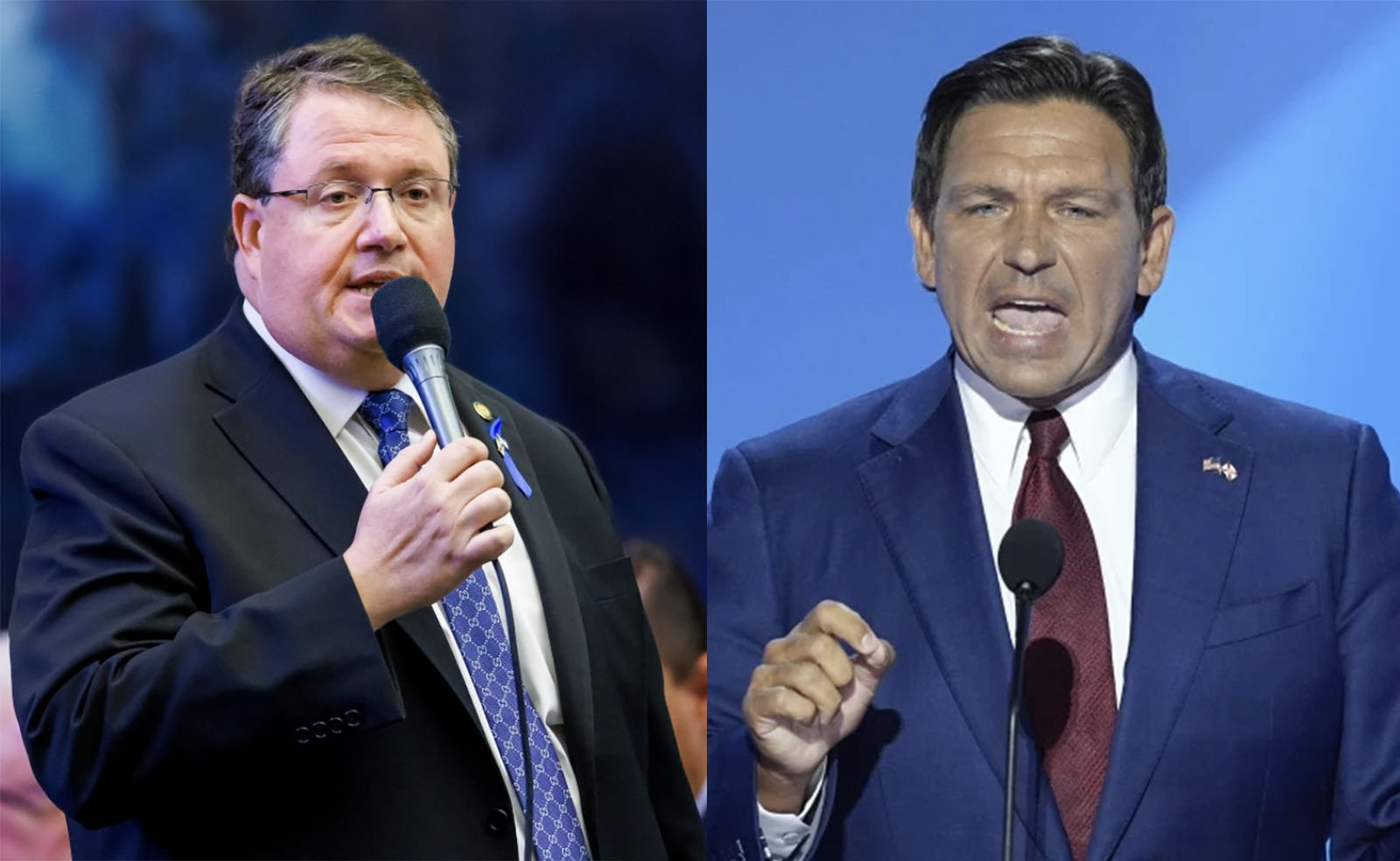Capping a nearly two-month debate with no shortage of conspiracy theorizing from the public, the Senate has passed legislation to crack down on suspected weather modification and bioengineering in Florida.
The bill (SB 56) passed after a back-and-forth on the chamber floor between its sponsor, Miami Republican Sen. Ileana Garcia, and Boca Raton Democratic Sen. Tina Scott Polsky, who asked pointed questions and received circuitous answers.
Senators voted 28-9 for the measure, with Broward Democratic Sens. Jason Pizzo and Barbara Sharief joining their GOP colleagues in voting “yes.”
Garcia admitted that carrying SB 56 to passage “has been nerve-wracking” and often drew political discourse she hoped it wouldn’t.
“I didn’t want this to be an issue where it was politicized,” she said. “The bill really comes from concerns, a lot of concerns.”
She insisted the bill and its House analog (HB 477) by Tallahassee Republican Rep. Kevin Steele aren’t meant to perpetuate conspiracy theories over cloud seeding, solar radiation modification and so-called “chemtrails.” Rather, she said, the goal is to put those concerns to rest if unsubstantiated or, if proven true, to curtail them with severe penalties.
“The purpose of this bill is to separate fact from fiction,” she said.
SB 56, which can now move to the House for a vote, would make geoengineering and weather modification a third-degree felony, punishable by up to five years in prison and a significantly hiked monetary fine of up to $100,000. Each individual infraction would count as a separate violation, potentially leading to significantly longer and pricier penalties.
The bill would also direct the Department of Environmental Protection (DEP) to intake reports of suspected wrongdoing, investigate claims it deems warranting of further review and report its observations to the state’s health and emergency management agencies.
Beginning Oct. 1, operators of publicly owned airports must submit monthly reports to the Florida Department of Transportation on any aircraft equipped to disperse substances with climate-altering capabilities. Any airport failing to do so would lose state funding.
During the bill’s first committee stop in February, Garcia said 32 other states had passed similar legislation. According to the U.S. Government Accountability Office, 10 states have outlawed weather modification or were considering such legislation by the end of 2024.
SB 56 and HB 477 drew ample public testimony as they advanced through their respective chambers, including from actress and TV personality Marla Maples, President Donald Trump’s second wife, who suggested an increase in Alzheimer’s disease cases could be due to weather modification.
Maples and others also referenced a documentary on YouTube called “The Dimming” about alleged efforts to reduce solar radiation through aerosolization of chemicals including aluminum, barium and silver iodine.
Others testified about routinely seeing “unusual trails and streaks,” often called chemtrails. Chemtrails are a decades-old, debunked belief that contrails, the white lines of condensed water vapor that jets leave behind in the sky, are in fact toxic chemicals the government and other entities are using to alter the weather, sterilize people or control their minds.
Chemtrails conspiracy theories began circulating in the late ’90s after the U.S. Air Force published a report about weather modification. By 2001, federal bureaucracies had received thousands of communications about the fast-spreading concept, prompting numerous federal agencies and educational institutions to publish fact sheets to address public concerns.
More recently, Tennessee Gov. Bill Lee signed a measure in April banning the “intentional injection, release or dispersion” of airborne chemicals. Six months later, Republican U.S. Rep. Marjorie Taylor Greene of Georgia reignited the argument by declaring on X, “Yes they can control the weather. It’s ridiculous for anyone to lie and say it can’t be done.” Greene’s comments drew censure from both sides of the aisle.
On Thursday, Polsky asked Garcia how DEP would investigate claims of weather modification, considering any suspected chemicals would likely dissipate in the atmosphere, making detection difficult.
Garcia said DEP, after receiving a complaint, would “begin to not just track by area but also by using … radars (to) coordinate with other mechanisms (and) bodies that (work on weather tracking) such as (the National Oceanic and Atmospheric Administration and) other bodies of meteorologists, and based on certain concerns, certain complaints, certain criteria, they will be able to decide whether it’s worthy of following gup on a more scientific … basis.”
After Polsky noted that, according to a Senate staff analysis of SB 56, Florida hasn’t issued a permit to seed clouds in 10 years, Garcia said research has shown the state’s clouds “aren’t good candidates” for seeding and that unauthorized entities are employing other methods to modify the weather.
She said Florida’s existing weather modification laws aren’t effective and allowed a potential “free-for-all.”
“Whether it’s rock weathering, whether it’s solar radiation modification, whether it’s cloud seeding — something as simple as sending up a $30 balloon that you can buy on Amazon with specific chemicals that can alter the weather or solar radiation — seems very concerning to me,” she said.
“I have a problem with people spraying perfume next to me sometimes. Don’t you have a problem with people spraying things into the atmosphere that really have no type of empirical data, that you just don’t know who they are or what they’re doing?”
Republican Sens. Tom Leek of Ormond Beach and Clay Yarborough of Jacksonville thanked Garcia for sponsoring SB 56. Yarborough said he’d received numerous calls from constituents concerned about weather modification. Leek said any concerns about the need for Garcia’s measure would be satisfied by the measure itself.
“The best thing about this bill,” he said, “is that after it’s implemented, you will know.”
Post Views: 0

 Entertainment8 years ago
Entertainment8 years ago
 Politics8 years ago
Politics8 years ago
 Entertainment8 years ago
Entertainment8 years ago
 Entertainment8 years ago
Entertainment8 years ago
 Tech8 years ago
Tech8 years ago
 Tech8 years ago
Tech8 years ago
 Tech8 years ago
Tech8 years ago
 Politics8 years ago
Politics8 years ago










